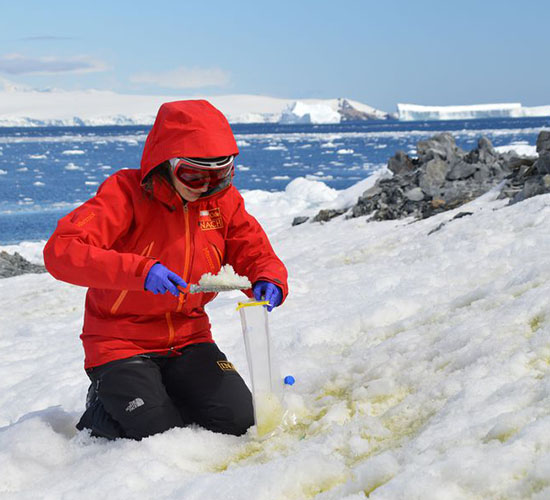Political Science

The 13 FONDAP Centers of Excellence in Priority Areas currently available to the country, are the fruit of a fundamental paradigm shift in national science policies that occurred more than a decade ago. The Chilean State, through the then advice FONDECYT, established the unprecedented creation of a program of "science by mission" with research of excellence that should be developed in direct relation to the needs of the country and contribute to the design of evidence-based public policies.
This milestone marked the beginning of the FONDAP program, place where science, innovation, technology and knowledge are articulated and guided to strengthen society's responses to major country challenges such as the Climate change, the Sustainable Cities, Disaster Risk Management, Conflicts and Social Cohesion, the Dynamics of High Latitude Ecosystems, Chronic Diseases, Water Resources, Interculturality and Indigenous Peoples, Solar Energy, Geothermal, Sustainable Aquaculture, the Genetics and Genomics of the species and inhabitants of Chile, and Population Ageing.
Each of the researchers, professionals and students who actively participate in the 13 FONDAP Centers of Excellence – currently in operation –, develop their research efforts in topics, not only scientifically interesting and complex, also socially relevant to Chile and its population. They do so by nourishing themselves with interdiscipline., inter-institutional collaboration, and having the openness to host experiences and knowledge that are outside the university classrooms.
Fulfilling the mission entrusted, in the last decade, FONDAP Centres of Excellence have actively collaborated in working groups with public institutions at ministerial level, National Congress, regional governments, governorates and municipalities, participating in the design of public policies, the development of regulations, protocols, bills and in the constitutional process. They have done so by generating new spaces for dialogue and exchanges between different actors., demonstrating the social relevance of science, innovation, technology and knowledge.
In that perspective, the appointment of Maisa Rojas and Juan Carlos Muñoz, as ministers of the government of the President Gabriel Boric, crowns the efforts of synergization between academic work and the generation of public policies, that both have led in an exemplary way from the direction of the CR Centers of Excellence(2) and CEDEUS, respectively.
PhD in Atmospheric Sciences from the University of Oxford, Maisa Rojas, she has also been president of the COP25 Scientific Committee on Climate Change, and part of the technical advisory body of the Committee on the Environment and National Assets of the Senate in the discussion of the draft Framework Law on Climate Change that is currently being discussed in the Chamber of Deputies.
The PhD in Civil and Environmental Engineering from the University of California, Berkeley, Juan Carlos Muñoz, in both, has been an advisor to the Ministry of Transport and Telecommunications on issues related to the design and regulation of public transport and was in charge of the Cities table that prepared key inputs for COP25. Together with other directors of FONDAP centers of excellence, Maisa and Juan Carlos, have been members of the Scientific Committee for Climate Change of the Ministry of Science, Technology, Knowledge and innovation.
We have no doubt that both Maisa and Juan Carlos, will work hard from their respective portfolios to strengthen a guiding principle of the FONDAP Centre of Excellence: making evidence-based public policy, sensitive and contextualized by the social and cultural realities that are expressed in the territorial diversity of our country.
*Sergio Lavandero | Director of the Advanced Center for Chronic Diseases, ACCDiS
*Waldo Bustamente | Director (s) of the Center for Sustainable Urban Development, CEDEUS
*Diego Morata | Director of the Center of Excellence in Geothermal Energy of the Andes, CEGA
